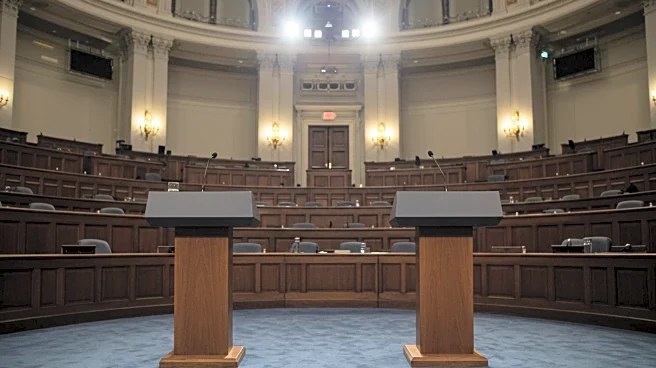What's Happening?
In the Virginia governor's race, Republican nominee Lt. Gov. Winsome Earle-Sears has accepted an invitation from CNN to participate in a fall debate. However, her Democratic opponent, former U.S. Representative Abigail Spanberger, has declined the invitation. The debate, proposed to take place in late September or early October, would have been moderated by CNN anchors with questions from voters. Earle-Sears' campaign emphasized her willingness to engage directly with Virginians, contrasting her approach with Spanberger's. Spanberger's campaign, however, has opted for a regional debate, citing a preference for Virginia-based media and accessibility for Virginians. This decision comes as the Virginia Police Benevolent Association endorsed Spanberger, despite their support for Republicans in other state races.
Why It's Important?
The Virginia governor's race is one of only two such elections in the year following a presidential election, making it a potential indicator for the upcoming midterms. The candidates' differing approaches to debate participation highlight strategic decisions that could influence voter perceptions. Earle-Sears' acceptance of the CNN debate suggests a strategy to reach a broader audience, while Spanberger's focus on Virginia-based debates underscores a localized campaign approach. The outcome of this race could have implications for party strategies and voter engagement in future elections.
What's Next?
Negotiations are ongoing for a debate hosted by WAVY-TV and Norfolk State University, which Spanberger's campaign has accepted. The outcome of these negotiations and the eventual debates will likely shape the narrative and voter engagement leading up to the election. Both campaigns will continue to strategize on how best to present their platforms to Virginia voters, with potential impacts on their respective party's standing in the state.











